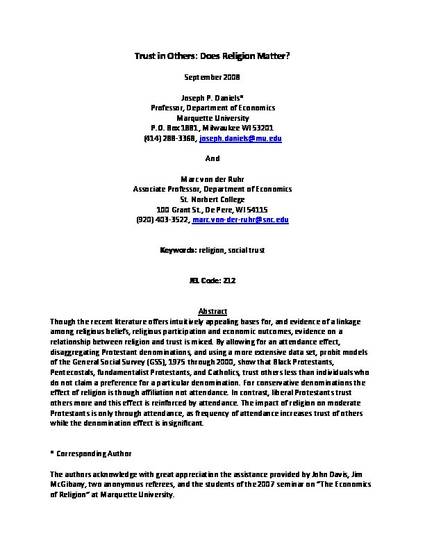
Though the recent literature offers intuitively appealing bases for, and evidence of, a linkage among religious beliefs, religious participation and economic outcomes, evidence on a relationship between religion and trust is mixed. By allowing for an attendance effect, disaggregating Protestant denominations, and using a more extensive data set, probit models of the General Social Survey (GSS), 1975 through 2000, show that black Protestants, Pentecostals, fundamentalist Protestants, and Catholics, trust others less than individuals who do not claim a preference for a particular denomination. For conservative denominations the effect of religion is through affiliation, not attendance. In contrast, liberal Protestants trust others more and this effect is reinforced by attendance. The impact of religion on moderate Protestants is only through attendance, as frequency of attendance increases trust of others while the denomination effect is insignificant.
Available at: http://works.bepress.com/joseph_daniels/17/

Accepted version. Review of Social Economy, Vol. 68, No. 2 (June 2010): 163-186. DOI. © 2010 Taylor & Francis. Used with permission.